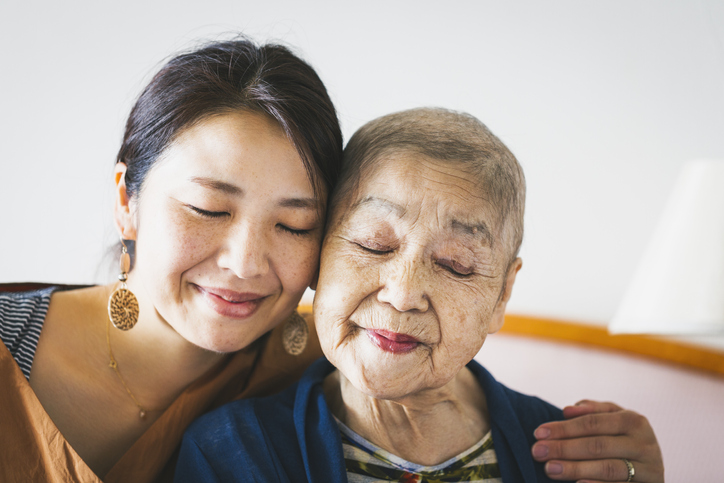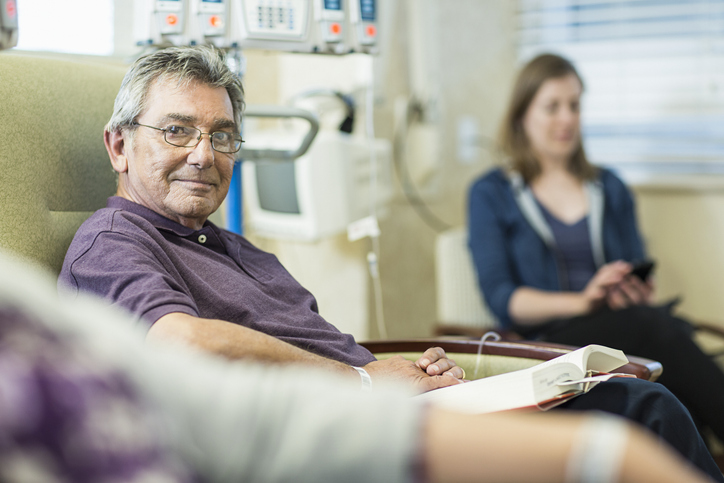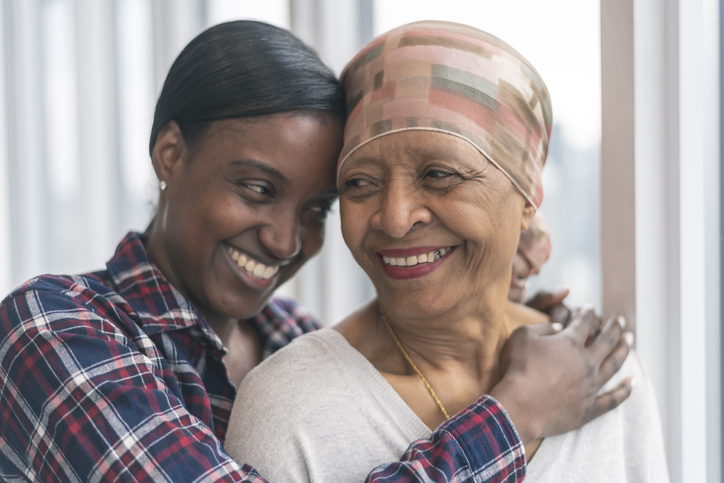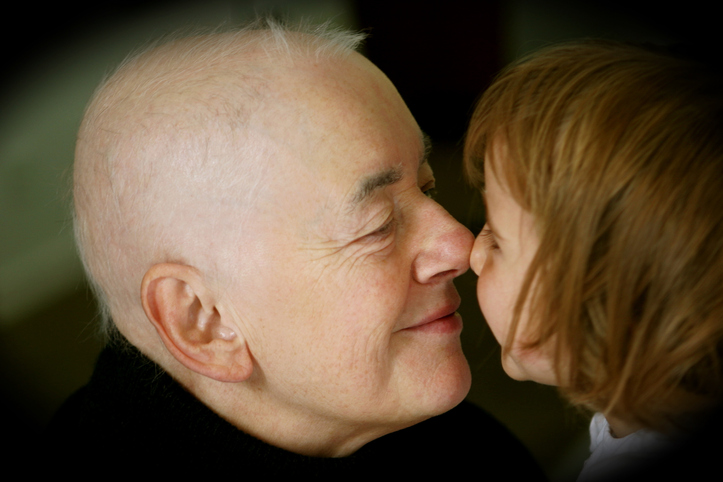Caring for someone with cancer: How to help, cope and support
- Category: Community
- Posted on:

When someone you love has cancer, it can feel like your world is falling apart. It may be hard to do everyday things, but it's important to try. You may also be able to help your friend's family when they have cancer.
How to support a family member with cancer

Cancer is a serious disease, and your loved one will need to see the healthcare provider a lot. It can help to learn more about what cancer is, how it is treated, and how it will affect your loved one and you.
Expect that the usual routine at home will change. It's not going to be easy, but here are some things you can expect:
- Helping out. You may have to help out more around the house if your loved one has cancer. For example, you may have to set the table every night. You may feel upset with having more things to do. You may want to spend more time with your friends. If you feel like you have too much to do, talk about it with someone.
- Missing loved ones. When a loved one has cancer, they may have to go away for treatment. And if a loved one is away from home a lot, chances are that another loved one is too. For example, if your mother has cancer, your father may also be with her at the hospital.
- Others caring for you. If one of your parents has cancer, your other parent may need extra help. This may mean that another relative will come to stay with your family. Or you may have to go away to stay with someone which can be very hard. Even though you may miss your family, it may be an opportunity to do things with your relative who is taking care of you.
RELATED: Cancer 101: Frequently Asked Questions
Supporting a friend who has cancer

If someone you love has cancer, you're feeling many emotions. You may feel sad, angry, and confused. It's OK to feel this way.
If you have any questions about your friend's cancer, first ask your friend.
- Talking about cancer. If you feel sad or mad about your friend's cancer and its effect on you, talk to someone. Your friend's hospital may have support groups. There you can talk to others who are experiencing the same thing. Or it may help to talk to a counselor. A counselor can help you understand your feelings.
Many people today survive cancer, but some people do not. Some people die. For some people who survive cancer, sometimes cancer can come back.
- Death. When a friend or loved one has cancer, he or she could die. Many people who have cancer don’t die. You may be very scared thinking that your loved one could die. Your friend may be scared too. Talk about how you feel. If you feel funny talking about death with your friend who has cancer, talk to someone else. Talk to a parent, relative, or teacher.
- Cancer returns. Sometimes healthcare providers think they have cured cancer, but it comes back. When cancer comes back, it usually means that the cancer is serious. Your friend will likely need stronger treatment. Again, it's important to talk about how you feel.
RELATED: Life After Cancer: Understanding Second Cancer
Helping someone through chemotherapy

If you are curious about your friend or loved one's treatment, you may want to ask if you can go with him or her to a clinic visit or another appointment. Your friend or family member may not want you to come. Or, he or she may be happy that you want to go.
If you go, you can meet your loved one's healthcare providers. You can also ask them questions.
It may be scary to go, but it will help you understand your loved one's treatment
- Chemotherapy. This is the use of medicine to kill cancer cells. Sometimes, the cancer patient will take a pill. Other times, your loved one has to have a shot or get medicine through an IV. Depending on the type of chemotherapy, your friend or family member may have to go to the hospital or clinic to receive the chemotherapy treatments.
- Side effects. Some cancer treatments have side effects. Side effects happen when the treatment tries to kill the cancer cells and it kills healthy cells by mistake. Not everyone has side effects. Side effects depend on the type of cancer and the treatment. Side effects usually go away when treatment ends. But some side effects can stay.
Common side effects include:
- Feeling tired
- Feeling sick to your stomach
- Throwing up
- Feeling sad a lot of the time (depression)
- Having a fever
- Having a skin rash
- Blood problems
- Hair loss
Helping kids cope with cancer

Special treatment. If your brother or sister has cancer, it may feel like they are getting special treatment. In a way, they have to because they are sick. But it may make you mad. You might get in trouble for doing something, but your brother or sister won't. Your parents likely want to do all they can for your sick brother or sister. It may seem like they get away with things because they are sick. It doesn't seem fair, but try not to let it bother you
Strained friendships. Your friends may feel funny around you because your loved one has cancer. They may not want to make you feel bad, so they may not ask about your loved one. Or they may not understand cancer.
They may tease you or think that they could catch cancer from you. It may help you to talk to your friends. Your parents may talk to your teacher and your teacher may talk to the class about cancer. There may also be times when you don't want to talk about your loved one's cancer. Or you may not want to see your friends. That's OK.
Try to reach out to your friends. They will want to know that you still care about them. It's important to see your friends.
Hair loss. Sometimes cancer treatments can cause your loved one to lose their hair. This can look scary because we're used to seeing most people with hair. Hair most often grows back after treatment ends. If your loved one loses their hair, they may wear a wig or a scarf to protect the scalp. Or your loved one may not wear anything. This may make you feel uncomfortable. Talk with your loved one about how you feel. You may even decide to get your head shaved so that you and your loved one are bald together!
RELATED: For Teens: What to Expect If Your Loved One Has Cancer
Cancer treatment can be a long and tiring experience. Many people with cancer need help throughout the process. Getting help from others can make your experience more successful. Support groups for people with cancer and their families are available in many communities.
Helping manage their emotional health, diet, and finances are all things you can do to reduce the stress involved in the treatment process. Oncology nurses and social workers are excellent resources for locating appropriate support groups.
Learn more about cancer care at LCMC Health:
Cancer Care at Children's Hospital New Orleans

